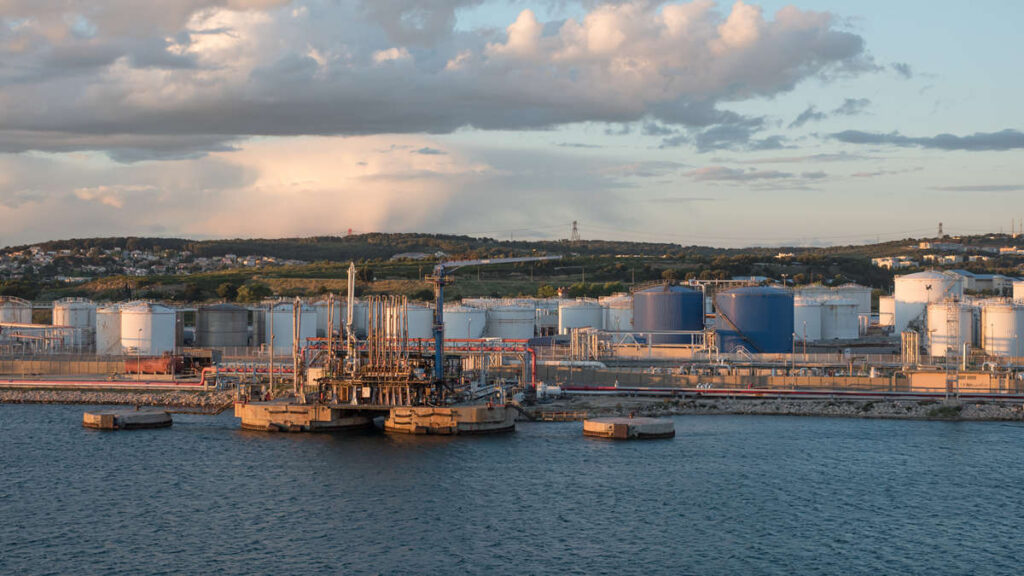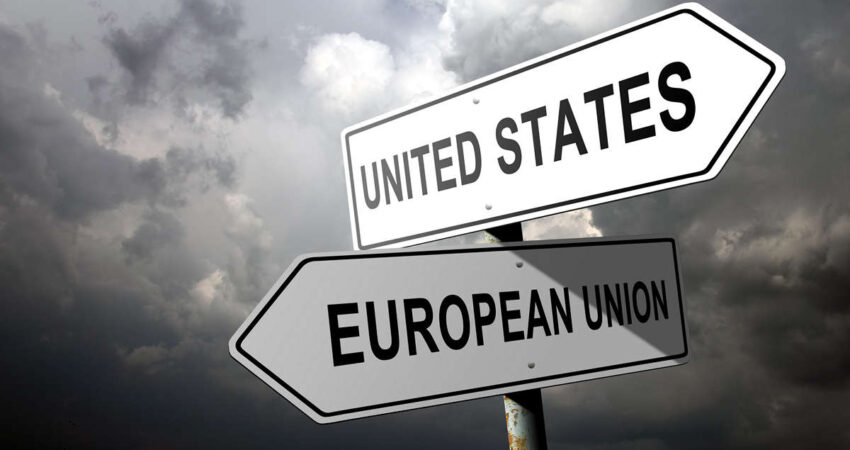Adobe: 73906451
With the start of the war in Ukraine in 2022, the EU began to steadily reduce purchases of energy from Russia, particularly gas, intending to end gas imports from Russia completely by 2027. As at the end of June 2023, Russia’s share of EU gas imports had decreased from 38.5% to 12.9% compared to the same period in 2021.
In order to make up for Russian gas supplies, Europe has made a bet on increasing LNG imports from other countries, first and foremost the United States. According to results for 2022, the amount of American gas bought in Europe grew by almost 2.5 times compared to the previous year. Ditte Juul Jørgensen, Director-General for Energy at the European Commission, has acknowledged that the EU will depend on LNG from the US for decades to come in order to meet its needs after reducing purchases of Russian gas.
However, there are doubts that reorientation towards American liquefied natural gas will solve all Europe’s problems. As early as January 2023, researchers from Investigate Europe warned that importing LNG from the United States would create a new dependence in exchange for dependence on gas from Russia. According to data from the research, European companies have signed at least 33 contracts for American LNG over the last ten years, and ten of these were made in 2022. The term of the majority of the agreements is 20 years.
However, the greatest damage to the EU’s energy security could be caused by the decision taken in January by US president Joe Biden to halt issuing export licences for LNG. According to experts, it has become obvious after this that the EU’s bet on American gas carries considerable risks for European consumers.
Attacks from environmentalists
On 26 January, Joe Biden’s administration paused approval of new licences to export liquefied natural gas in order to carefully study how these supplies affect climate change, the economy, and national security. The Department of Energy’s research will be based on analysis that is at the core of a review of proposals to increase volumes of natural gas supplies to European countries.
Experts warn that the research could drag on to at least the end of the year, before the report will be available for public consultation. Senior officials in the American administration have not specified the exact timescales, noting only that the research will be carried out as quickly as possible and will take only a few months. At the same time, analysts link this decision by Biden to the campaign underway for the US presidential elections in November this year and believe that approval of new licences to export LNG from the United States will not resume until after the election.
The refusal to grant new LNG licences has already met with serious criticism both from the American establishment and international business. Mitch McConnell, leader of the Republicans in the Senate, has declared that restricting LNG exports will hinder the achievement of an US important goal: its fight against Russian influence as a global gas supplier.
Charlie Riedl, head of liquefied natural gas trade association the Center for LNG,
agrees that the consequences of President Biden’s decision include a geopolitical element. He warns that the Biden administration’s unforced decision to postpone issuing licences for additional LNG exports will undoubtedly send an alarm signal to America’s allies and will potentially force them to turn to “bad actors” such as Russia for LNG supplies.
In their turn, the US Chamber of Commerce, together with business associations BusinessEurope and Keidanren – organizations that between them represent the interests of US, Japanese and European business people – have called on President Biden to review the decision to stop giving new licences to projects focused on exporting liquefied natural gas. “With numerous forecasts projecting global natural gas demand to rise well into the next decade, additional supplies of LNG will be needed to supply world markets. We know this demand can be met in a manner that continues progress on emissions reductions,” states a joint letter from these organizations.
The decision by the Biden administration was condemned in the Senate, where it was stated that the halt in giving licences breaks the US’s promises to help Europe squeeze Russian gas out of the market after the start of the conflict in Ukraine. Senator for West Virginia Joe Manchin spoke out most firmly, saying that if the US administration has facts demonstrating that additional LNG export capacities will cause harm to Americans, they should make this information clear and public. He indicated however that if the pause was simply a political manoeuvre aimed at appeasing climate activists at the expense of American workers and the businesses of America’s allies in need, he would do everything in his power to bring an immediate end to the pause.
Partner could become aт unreliable supplier
We should note that as it is, the situation with supplies of American gas has already often been a target for criticism in Europe. As European Commission President Ursula von der Leyen has stated, Europe has been able to compensate for the loss of Russian energy imports, but this has been achieved through higher energy prices, which has affected the competitiveness of many branches of European industry, particularly in energy-intensive sectors of the economy. French finance minister Bruno Le Maire has quite openly accused Washington of attempting to profit from its partners, stating that the Americans are selling their LNG to European companies at a price four times higher than the domestic price.
However, if high gas prices have not impeded supplies from America to Europe, Washington’s energy policy, which has changed under pressure from the climate lobby, could put the reliability of these purchases in doubt. Ira Joseph, Senior Research Associate at the Center on Global Energy Policy at Columbia University, notes that the risks with which Europe’s dependence on American LNG is fraught will only grow. He believes that Europe’s position is also becoming riskier by the day, stating that “the risk is a major change in US policy in the future.”

Adobe: 490302502
The reduction in gas supplies from Russia in 2022 has contributed to a sharp growth in electricity prices in Europe, damaging consumers and businesses. Back then, tankers laden with liquefied gas from the United States looked like the only opportunity to mitigate the catastrophic consequences anticipated. In the current situation though, with the EU no longer able to rely fully on its American partners, restrictions on gas supplies from the United States will become a “huge concern,” believes Fredrik Persson, president of BusinessEurope, the continent’s largest business group.
The Biden administration is calling on countries that depend on LNG from America to remain calm. According to a statement from the United States Department of Energy, the pause on issuing licences for gas exports will not affect America’s ability to supply liquefied natural gas to its allies in Europe, Asia and other countries under existing contracts.
In an interview with Reuters, Anne-Sophie Corbeau, a researcher at Columbia University’s Center on Global Energy Policy (US LNG export pause leaves EU, industry at odds over energy security | Reuters) appeals against dramatizing the situation. “The EU will become a declining gas consuming region, the signals are downward. Between growing biomethane, Norwegian gas, some African gas, Azeri gas and declining production, we might just see eventually a progressive decline of our LNG demand, especially post 2030, and this is precisely for that period that the Biden decision would matter,” she said.
Reuters emphasizes that LNG capacity will almost double to about 24.5 billion cubic feet per day by the end of 2028 if all the projects that have been approved are built. Longer term, the European Union’s gas consumption is expected to fall as the bloc shifts away from fossil fuels to meet its climate change goals, and the region may not need the additional US LNG. Strong growth in demand elsewhere in the world means that LNG is likely to find a market, however.
Nevertheless, analysts note that even rigorous implementation of contracts that have already been made cannot hide the fact that the Europeans cannot fully rely on American supplies in the next few years. “What this really highlights for Europe is, you are running out of options,” said Henning Gloystein, a director for energy and climate change at political risk firm Eurasia Group.
Problems with Venture Global
The situation with America’s Venture Global LNG also shows that cooperation with the US on gas could bring serious risks for the EU. For a long time now, the company has been dragging out the official launch of its Calcasieu Pass LNG facility in Louisiana. Meanwhile, according to data from Reuters, Venture Global has nevertheless already sold more than 200 consignments on the spot market, to a value of around $18.2 billion. Shell and other companies that have signed contracts with Venture Global maintain that the firm has obtained this “unlawful” profit from a rally in world gas markets, while at the same time “short-changing” Europe’s energy security. The issue is that even without its official launch, the plant is certainly working.

Adobe: 194153177
As stated in a new report from the Institute for Energy Economics and Financial Analysis, it is precisely the delay in the plant’s official launch that has allowed Venture Global to sell consignments of LNG from the lines that are operating on the spot markets, where prices are significantly higher. In accordance with contracts, until the facility is launched, gas is sold under spot contracts, and long-term contracts will come into force only after the plant’s official launch.
A number of European operators appealed to the United States’ Federal Energy Regulatory Commission (FERC) to intervene in the situation and then turned to the Court of Arbitration. However, as analysts from JP Morgan note in their report, it is difficult to imagine that Venture Global will lose the arbitration cases, since the contracts did not originally provide for the protection of buyers against the risk of the launch date for commercial operations being put back.
At the same time, BP stated in its official letter that Venture Global had constantly cast a veil of secrecy over its activities and refused to follow FERC’s rules – alluding to the fact that buyers do not understand what stage the implementation of the Calcasieu Pass project is at. FERC’s supervision of the work of the LNG site does not correspond to transparency requirements, BP adds in a claim to the energy regulator.
It would appear that having thrown the EU a lifeline in the form of shipped LNG supplies after the start of the war in Ukraine, the United States is starting to abuse its position – and unfortunately this is happening to the detriment of Europe’s economy, energy system and consumers. The American gas exporters’ monopoly, which does not offer guarantees for timely receipt of energy sources from the US, should impel the EU to more actively diversify LNG sources. However reliable a partner America may be, its domestic problems should not place European energy security in doubt.

